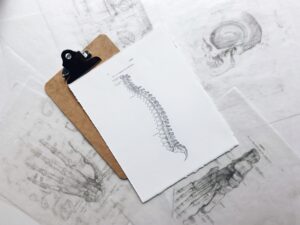Sciatica is a medical term used to describe neurotic pain that radiates from the sciatic nerve. The sciatic nerve is one of the longest nerves in the body. It innervates from the lower back to the knees.
Causes of Sciatica
One of the leading causes of sciatica is a compressed spinal disc. Between each vertebra in the spinal column is a cushioning disc. When these discs are damaged, they can compress the nerves in the spinal canal. Spinal compression can cause pain and nerve damage.
Symptoms of Sciatica
Sciatica can cause pain anywhere along your sciatic nerve pathway as it runs through your pelvis, hip, and leg to your foot. The buttock, thigh, and calf muscles may also become weak.
Typically, only one side of your body is affected, but both sides can be affected in rare cases. The pain is usually worst when a person first gets up in the morning and improves throughout the day. The pain can also be triggered by physical activity or sitting for too long. The sciatica symptoms vary from person to person, but most people experience pain in one or both legs. The pain can be sharp or burning and may radiate down the leg. Other symptoms include:
- Weakness and numbness in the leg or foot
- Tingling or pins and needles sensations in the leg or foot
- Sharp, shooting pain that radiates from the lower back area
- Muscle spasms in the back, legs, buttocks, and feet
- A feeling of weakness or tightness in the legs and buttocks
- Difficulty walking, bending, turning, and sitting
- Sciatica can also affect bowel control
Prognosis of Sciatica
The prognosis is usually good for sciatica if a herniated disc causes it. The person had not had any other symptoms like numbness or tingling in their legs before developing sciatica. Once the herniated disc has been treated, there should be an improvement within 1-2 weeks after treatment. It is important to continue physical therapy, even if you feel better.
This will help keep the muscles in your back strong to prevent future problems. Sciatica can also be caused by a problem with the spinal cord or nerve roots that run down the leg. These problems do not have a good prognosis and can become chronic and lead to permanent nerve damage. If you experience any of the symptoms listed above, you should see your doctor right away so they can diagnose your condition and treat it if needed.
Treatment of Sciatica
For many people, sciatica goes away after a few days or weeks. In some cases, however, it can last for months or years. If you have sciatica, you may want to try some home remedies to relieve your symptoms before consulting with a doctor. These include:
Pain Relief Medications
Many people find that over-the-counter medications (such as acetaminophen, ibuprofen, or naproxen) can help ease the pain. It’s a good idea to check with your doctor before taking any drug for a long time without being under the supervision of a physician.
Exercise
Gentle exercise can help relieve sciatica pain. Try swimming, walking, or using an elliptical trainer. These exercises allow you to move your body without putting too much pressure on your back muscles and will help you stay active during treatment. You may also want to try yoga or tai chi. Both are gentle forms of exercise that can be done sitting down and are beneficial for people with chronic pain conditions.
Heat and Cold Therapy
Applying heat (for example, a heating pad) or cold (for example, an ice pack wrapped in a towel) to the area around your spine and lower back may relieve sciatica pain. Alternatively, a massage can help ease muscle tension.
Spinal Manipulation
Spinal manipulation may help relieve the pressure on your nerve roots. A chiropractor or other health care provider who is trained in spinal manipulation may be able to help alleviate your sciatica pain.
Physical Therapy
A physical therapist will instruct you in exercises to strengthen your back and abdominal muscles to stabilize your spine and support it as you move. You may also learn how to use a cane or walker. Physical therapists train on the proper movement technique to reduce further damage, like switching from a sitting position (for example, when driving) to a standing position (for example, when vacuuming).
Surgery
For some people with sciatica caused by herniated discs, surgery can help relieve the pressure on their nerve roots. Surgery usually involves removing part of the disc pressing on the nerve root. In some cases, doctors may remove all of the disc material touching the nerve root. Contact us at 205-637-1363.








